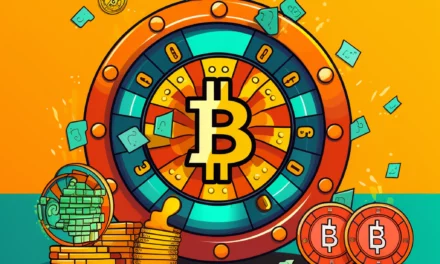Decentralized gambling platforms have started to sprout out of blockchain applications in recent years to challange centralized gambling options. The rapid emergence of a series of decentralized gambling platforms is starting to change the landscape for the sector in a major way. Especially, decentralized applications such as crypto casinos are facilitating the way users play and ensure that they have a seamless gaming experience.
On the flip side, traditional gaming ecosystems present a variety of problems. Their lack of transparency and security is a big detriment to the sector as a whole, and the presence of third parties is not ideal when it comes to managing players’ funds and data. In this article, we will explore the main areas of concern within traditonal centralized gaming frameworks, and see how Web3 innovations are changing the industry for the better.
Shortcomings of Centralized Applications
The Web2 gaming ecosystem relies on a multitude of appllications that are detrimental to the user experience. This is the majort reason why many players have turned to crypto casinos and blockchain gambling, which democratizes the entire gaming framework. But what are these centralized detriments specifically? Let’s find out.
- Centralized gaming platforms rely on centralized entities to develop games, track data and more. This means that, in many cases, third parties are involved when handling user data and funds. For example, many times it could be the case that outside entities are involved when handling a user’s depoit or withdrawal processes. This is certainly not ideal for the user.
- In addition, “centralized gambling platforms are often plagued by concerns regarding fairness and transparency, as users have to trust a single entity to oversee the betting process and ensure fair outcomes,” as a recent post suggeted. In contrast, decentralized frameworks offer provably fair outcomes by employing – as CoinGames does – smart contract applications such as our Vault system.
- Lastly, centralized gambling has the big disadvantage of complying with bank rules and terms when fund transefers and wait times are involved. Not only are transactions not anonymous – as every bank account and transaction involves a degree of personal information – but by complying with with bank rules, it can sometimes take fund transafers over a week to be completed. This is yet another matter that users will be taking increasingly into consideration when weighing their gambling options in the future.
Blockchain as the Key in Decentralized Gaming
At the core of decentralized gambling models are the applications that blockchain is used in, such as system integrations, as well as fostering a renewed level of trust between operators and users that, as we have seen, has been decaying in centralized gambling applications. What are these decentralized benefits in particular?
- By operating through blockchain technology, decentralized gambling operators have ensured that the integrity of their framework remains whole, while at the same time giving users a heightened sense of trust through its transparent model based on smart contract technology. Blockchain networks are more player driven, since they are not owned by the platform operator or any other entity.
- Smart contracts do not rely on intermediaries, and therefore ensure that the rules of the framework are fair and followed thoroughly both by operators and by users. By using smart contracts, these decentralized gambling applications give users the peace of mind that actions such as withdrawals and transactions happen essentially automatically and are not subject to human interference.
- Anonymity and data protection are a major benefit of decentralized gambling as well. By allowing players to simply connect their crypto wallet and play – following a quick and seamless deposit – these Web3 platforms allow users to play their favorite games without the necessity of giving up valuable personal data or even credit card details. Rather, the users are recognized by their wallet address and only by that, meaning these platforms give additional protection to players to prevent their perosnal information being exposed to malicious entities.
- In crypto casinos, there is no central authority, meaning that players have full liberty on their transactions (deposits, withdrawals and fund distributions) which are all recirded on a distributed ledger and therefore transparent and open to all. As a result, players do not face delays in receiving their winnings, which in decentralized gambling are released immediately by smart contracts upon the completion of certain specific criteria.
- Lastly, linking back to the players’ anonymity, transactions on decentralized platforms are pseudonymous as they are carried out through a crypto wallet rather than a bank card. This means that users are only ever identified by their cryptographic addresses, increasing the level of privacy that the Web3 gaming experience provides.
To try out your very own Web3 gaming experience, why not head over to CoinGames and see for yourself what all the fuss is about?




